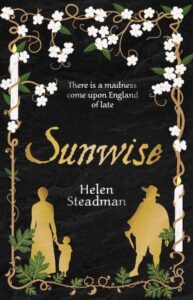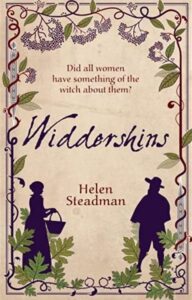 It is no secret that I have a particular interest in the history of the early modern period in England, which has the fascinating – to me, at least – intersection of old herbalist practices, folk healing, and alchemy with what were the beginnings of what became modern medicine, of folk understandings of the natural world with natural philosophy and later natural history. The period also had a swirling madness of spiritual upheaval as long-established practices in the Roman Catholic church were overturned by reformist and revolutionary movements that were as often as not every bit as corrupt and power-hungry as those they proclaimed to oppose, and tended to take out their frustrations upon the weak and vulnerable who still followed much older and much more local practices.
It is no secret that I have a particular interest in the history of the early modern period in England, which has the fascinating – to me, at least – intersection of old herbalist practices, folk healing, and alchemy with what were the beginnings of what became modern medicine, of folk understandings of the natural world with natural philosophy and later natural history. The period also had a swirling madness of spiritual upheaval as long-established practices in the Roman Catholic church were overturned by reformist and revolutionary movements that were as often as not every bit as corrupt and power-hungry as those they proclaimed to oppose, and tended to take out their frustrations upon the weak and vulnerable who still followed much older and much more local practices.
I also have a deep interest in witchcraft – both its history and the reactions it brings out in people both past and present.
Therefore when my attention was recently drawn to Helen Steadman’s 2019 novel Sunwise, by the newly released unabridged audio edition of it, I was mildly intrigued. When I discovered that it took as its central theme the period and place surrounding the Newcastle witch trials, I became decidedly interested. When I learned that Dr. Steadman is famous for the amount of background research she undertakes – learning thematically important skills herself, such as in this instance herbalism and techniques of folk healing – so as to incorporate in her stories a level of detail often lacking in much modern fiction, I was hooked.
 However before I can meaningfully take up a reading of Sunwise, I first needed to read (or in this case, hear) its predecessor – Dr. Steadman’s earlier novel Widdershins, in which the histories of the characters and events that make up the plot of Sunwise are established. This I am doing presently, and I will openly and fully admit that it is inspiring in me levels of interest and feeling that I have rarely found a novel to bring about in me for many a year.
However before I can meaningfully take up a reading of Sunwise, I first needed to read (or in this case, hear) its predecessor – Dr. Steadman’s earlier novel Widdershins, in which the histories of the characters and events that make up the plot of Sunwise are established. This I am doing presently, and I will openly and fully admit that it is inspiring in me levels of interest and feeling that I have rarely found a novel to bring about in me for many a year.
Having now secured printed copies, in addition to the audio ones, I shall soon take both these novels together as the subject of a future review, but from this point, nearly at the conclusion of Widdershins as I am, I have no hesitation whatsoever in recommending it to all those interested in a cracking good historical novel with a truly noteworthy level of well-crafted detail (including a generous amount of material on medicinal plants and their uses), and characters that will both make your heart break and your blood boil.
Available from:
If you enjoyed reading this, please consider signing up for The Well-read Naturalist's newsletter. You'll receive a helpful list of recently published reviews, short essays, and notes about books in your e-mail inbox once each fortnight.

